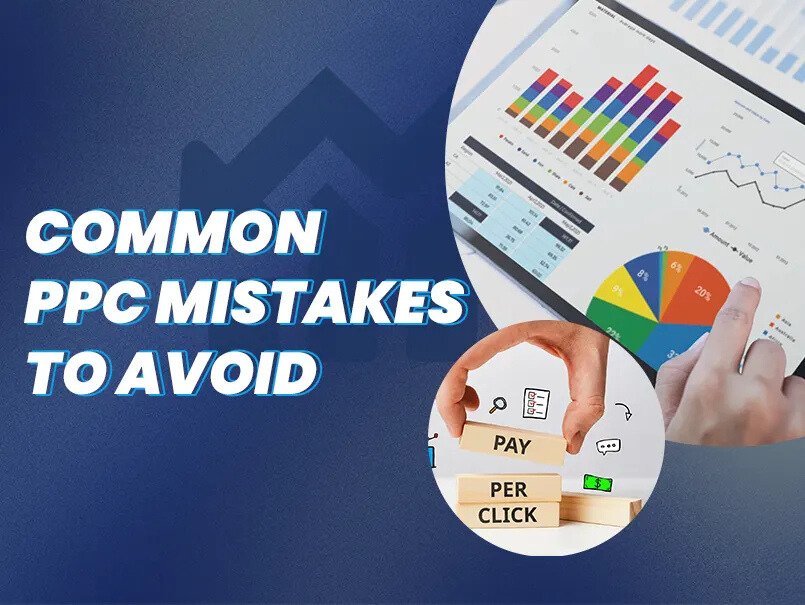Pay-per-click (PPC) advertising can be a highly effective way to drive traffic and generate leads, but common mistakes can hurt performance and waste your budget. Here’s a guide to the most frequent PPC errors and how to avoid them for better results.
1. Targeting Too Broad an Audience
Casting a wide net can dilute your budget and lead to unqualified clicks.
- Solution: Narrow down your audience using geographic, demographic, and behavioral filters.
- Focus on Intent: Target keywords that reflect users’ intent, such as “buy,” “hire,” or “schedule.”
- Exclude Irrelevant Traffic: Use negative keywords to filter out irrelevant searches.
2. Neglecting Negative Keywords
Failing to set negative keywords can attract unqualified traffic.
- Problem: Ads may appear for searches unrelated to your business, wasting your budget.
- Solution: Regularly review search query reports and add irrelevant terms as negative keywords.
3. Poorly Written Ad Copy
Generic or unclear ad copy can fail to capture attention or drive clicks.
- Solution: Write compelling, benefit-focused ad copy with strong calls-to-action.
- Highlight Value: Emphasize what sets your product or service apart.
- A/B Testing: Test multiple versions of your ad copy to determine what resonates most.
4. Ignoring Mobile Optimization
Many PPC ads are viewed on mobile devices, so neglecting mobile users can hurt performance.
- Problem: Poorly designed landing pages or CTAs that don’t work on mobile devices.
- Solution: Use responsive design and ensure that landing pages load quickly and function smoothly on mobile devices.
5. Overlooking Landing Page Relevance
Driving users to a generic or irrelevant landing page leads to poor conversions.
- Problem: Misalignment between ad copy and landing page content.
- Solution: Create dedicated landing pages tailored to each ad’s message and intent.
- Include Clear CTAs: Guide visitors toward the desired action with easy-to-follow instructions.
6. Setting Unrealistic Budgets
Overspending or underspending can limit your campaign’s effectiveness.
- Problem: Allocating too little restricts reach, while overspending can drain resources without returns.
- Solution: Start with a realistic budget based on your goals and refine as you gather performance data.
- Monitor Spend: Regularly check spending to avoid exceeding your limits.
7. Ignoring Campaign Performance Metrics
Failing to analyze campaign data leads to missed optimization opportunities.
- Problem: Running ads blindly without understanding performance.
- Solution: Track metrics like click-through rates (CTR), conversion rates, and cost-per-acquisition (CPA).
- Refine Based on Data: Adjust bids, keywords, and ad copy based on performance insights.
8. Overlooking Ad Extensions
Ad extensions provide additional information and improve visibility.
- Problem: Missing out on opportunities to provide users with more context.
- Solution: Use extensions like sitelinks, call buttons, and location details to make your ads more informative and actionable.
9. Not Testing Enough
Relying on a single ad or strategy limits your ability to learn what works.
- Problem: Stagnant campaigns that don’t adapt to changing user behavior.
- Solution: Test different elements, including headlines, visuals, CTAs, and targeting options.
- Iterate Continuously: Use test results to optimize and refine your campaigns.
10. Overloading with Keywords
Using too many keywords in a campaign can dilute performance.
- Problem: Lack of focus leads to lower relevance and quality scores.
- Solution: Focus on a manageable set of highly relevant keywords.
- Use Keyword Match Types: Experiment with exact match, phrase match, and broad match modifiers.
Avoiding these common mistakes in PPC advertising can help you maximize ROI, reduce costs, and achieve better results. By targeting the right audience, optimizing ad copy, and regularly analyzing performance, you can run efficient and successful campaigns.
Need help optimizing your PPC campaigns? Contact us today for expert insights and solutions tailored to your business.

